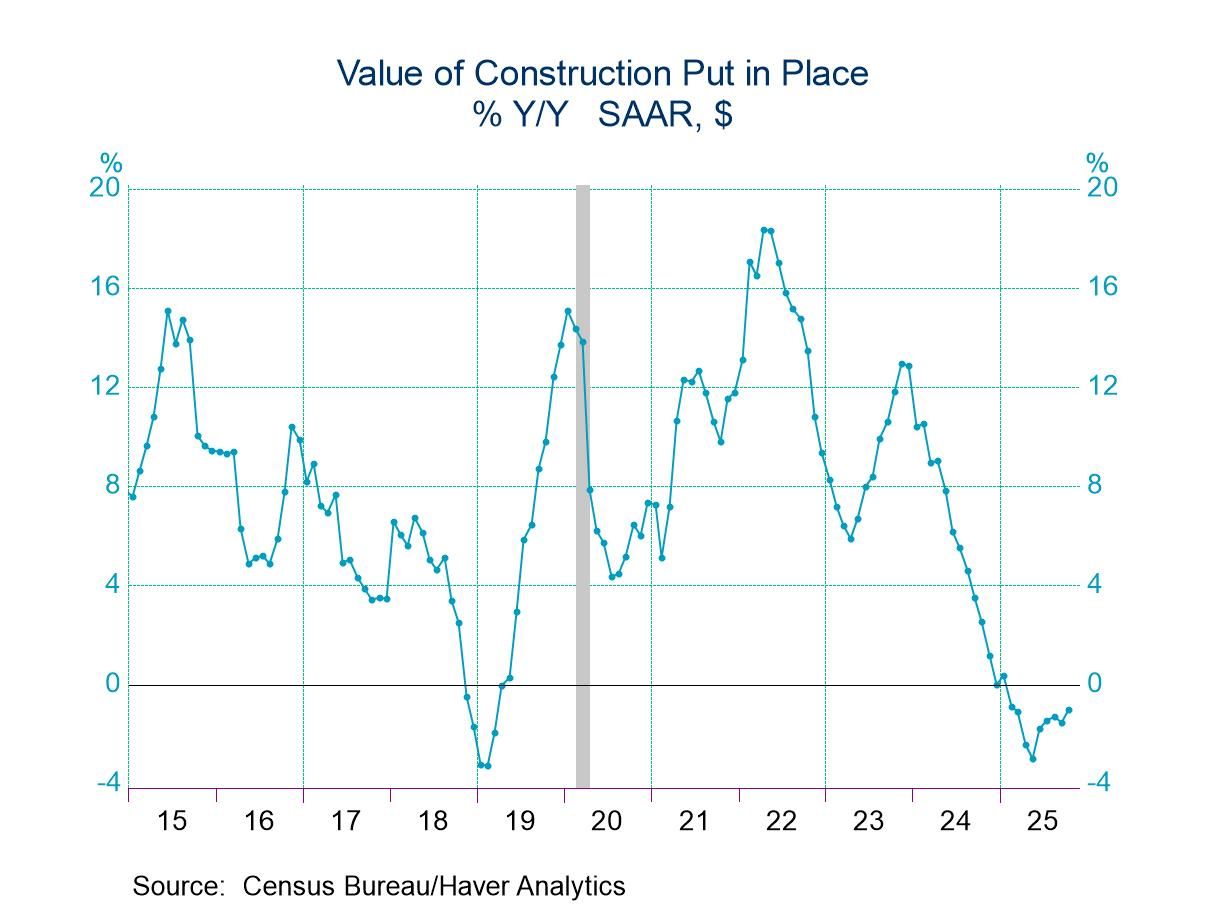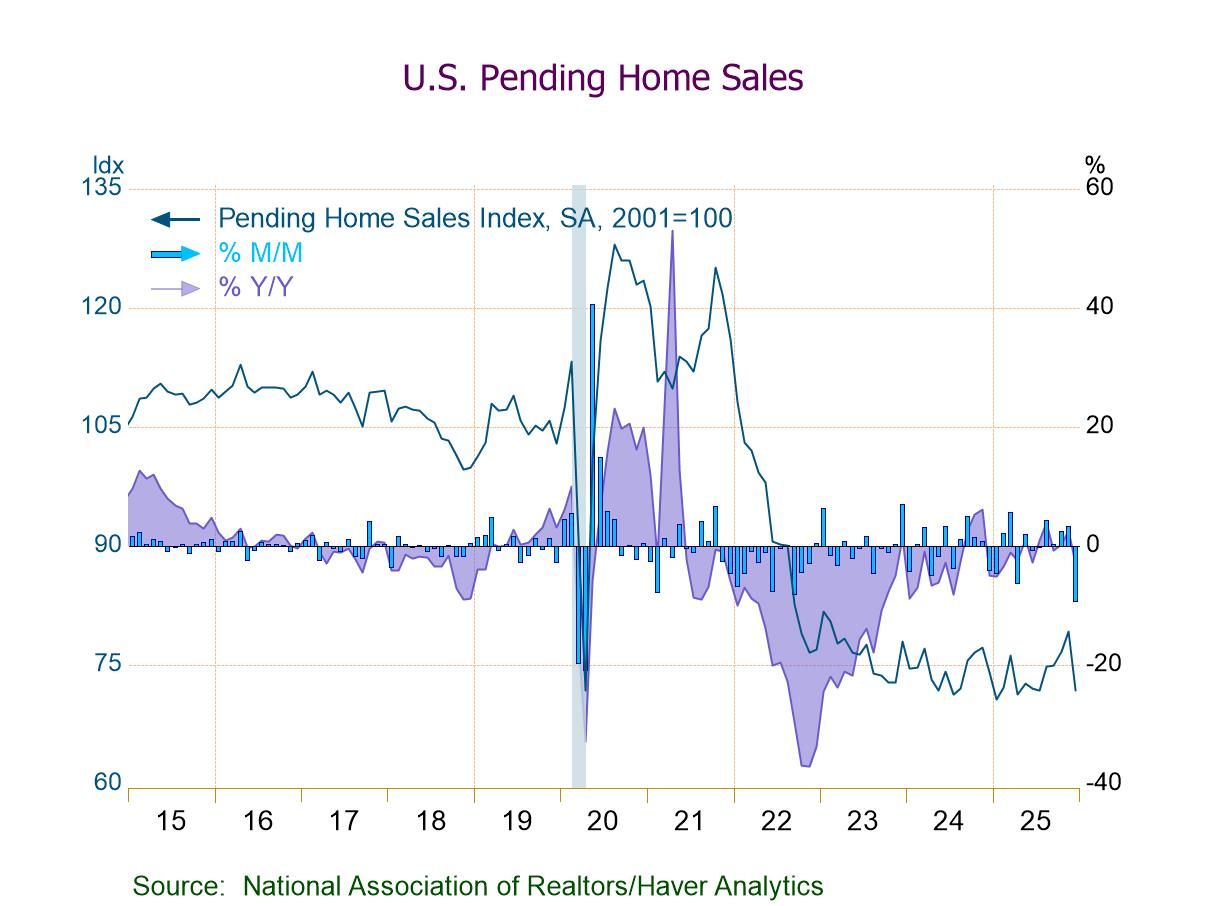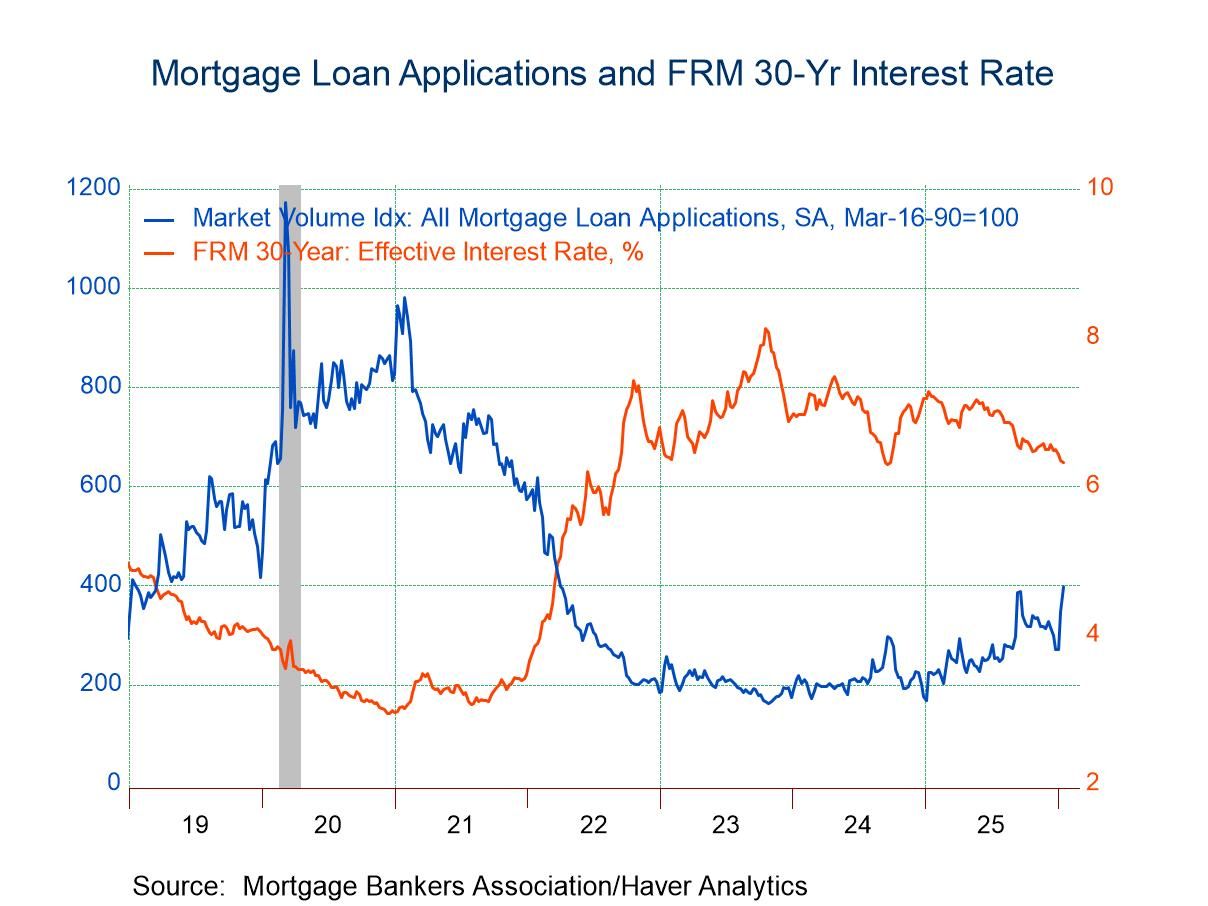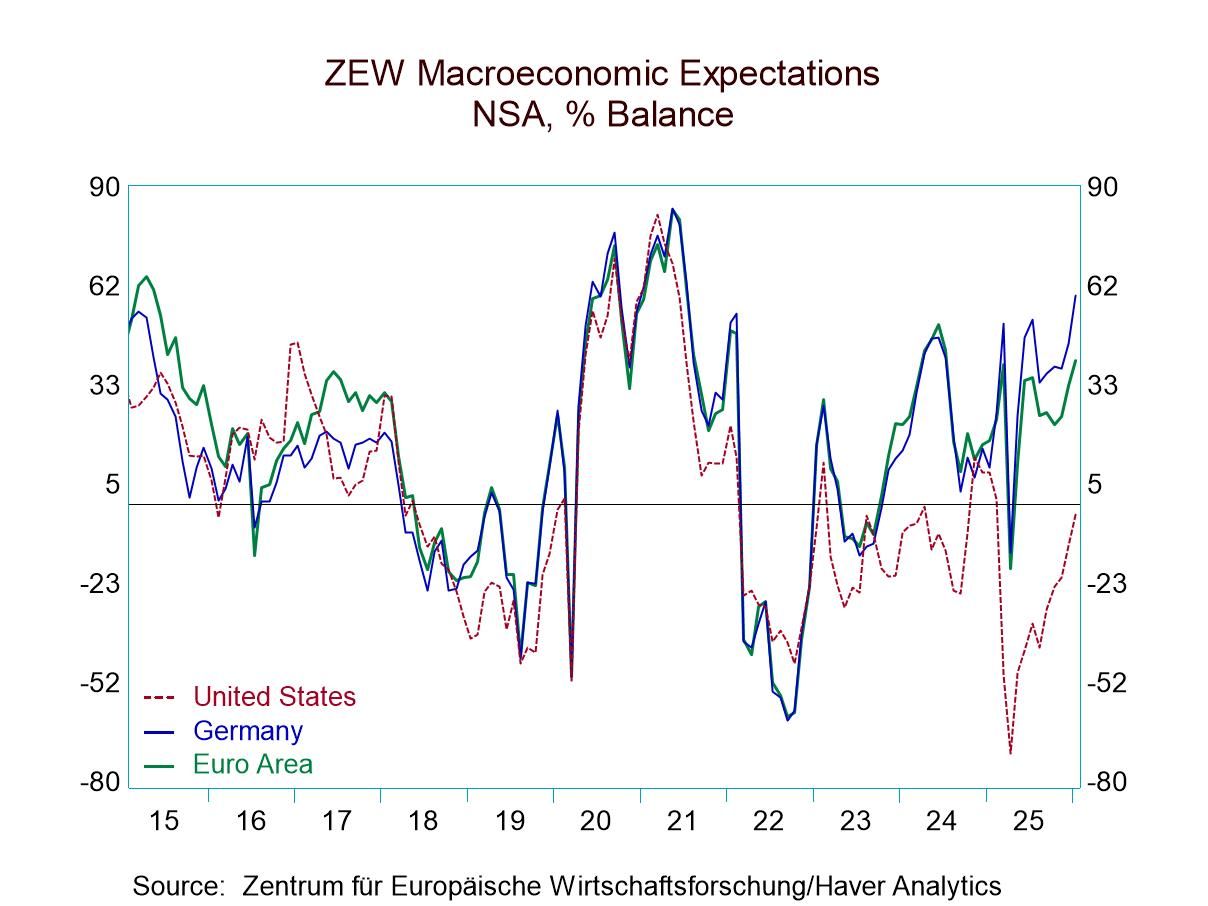UK Sentiment Improves in May-Remains Weak

Economic readings continue to ebb and flow as is common. In May, the UK GfK consumer sentiment index has improved to -20 from -23. However, at -20 it's still weaker than it was in March when its value was -19. The 12-month average for GfK sentiment in the UK is -18 leaving today's -20 reading from May still weaker on balance than it's been over the past year. All of this sort of ‘to and fro’ makes it a little bit more difficult to pin down what's happening. However, the chart on the GfK reading shows that the downtrend in consumer sentiment is still in place and with readings that continue to hover around -18 to -20 - good signals still are not being emitted and the trend has not been righted.
The GfK barometer has a 29-percentile ranking data back to 1996. So, this is a bottom 30% standing for the consumer sentiment rating for GfK.
Other economic readings continue to go back and forth just today the German GDP reading was up relatively sharply as US tariffs are being cited for stimulating German activity in the near term as firms tried to export goods before the tariff in the US went into effect. We had previously seen some improvement in the European manufacturing (PMI) indices that we speculated was due to that same sort of lead and lag, behavior surrounding the expected imposition of tariffs. For the UK itself, retail sales have been stronger than expected largely because of better weather. Yes, better sales but not on any fundamental improvement.
Economic readings are always back and forth, and readings are never gospel making it difficult to the central banks to discern trends and even to set policy if they are in a data-dependent mode. But that is nothing new. It may be a bit more of a problem now when so much uncertainty seems to hang in the air with the war in Ukraine unable to be stopped, the US pushing more defense responsibility onto Europe, and the US also brandishing tariffs to try to remake the world in a way it feels will be more fair and friendly for it. Of course, one man’s ‘friendly’ is often another man’s ‘unfriendly.’
The sentiment reading in the UK features strong readings for households’ current financial situation and savings environment…but the current economic situation is only at the 30% mark and, looking ahead, it has a modest 18-percerntile rank. By income groups upper income individual’s sentiment has a 75-percentile standing compared to an abysmal 3.8 percentile standing by lower income individuals.
Inflation over the next 12-months continues to have a high standing at an 86-percentile mark while unemployment prospects (that have diminished very recently) are at a 75-perntiel standing (higher only 25% of the time) and despite recent improvement on this score the unemployment response is still 9 survey points higher over the last 12-months.
The slight improvement in the GFK survey this month is even less than its monthly standard deviation for change. It is a rise, but not significant. The UK economy continues to face a difficult situation with sentiment, seeming to remain under pressure.

Robert Brusca
AuthorMore in Author Profile »Robert A. Brusca is Chief Economist of Fact and Opinion Economics, a consulting firm he founded in Manhattan. He has been an economist on Wall Street for over 25 years. He has visited central banking and large institutional clients in over 30 countries in his career as an economist. Mr. Brusca was a Divisional Research Chief at the Federal Reserve Bank of NY (Chief of the International Financial markets Division), a Fed Watcher at Irving Trust and Chief Economist at Nikko Securities International. He is widely quoted and appears in various media. Mr. Brusca holds an MA and Ph.D. in economics from Michigan State University and a BA in Economics from the University of Michigan. His research pursues his strong interests in non aligned policy economics as well as international economics. FAO Economics’ research targets investors to assist them in making better investment decisions in stocks, bonds and in a variety of international assets. The company does not manage money and has no conflicts in giving economic advice.







 Global
Global